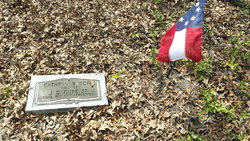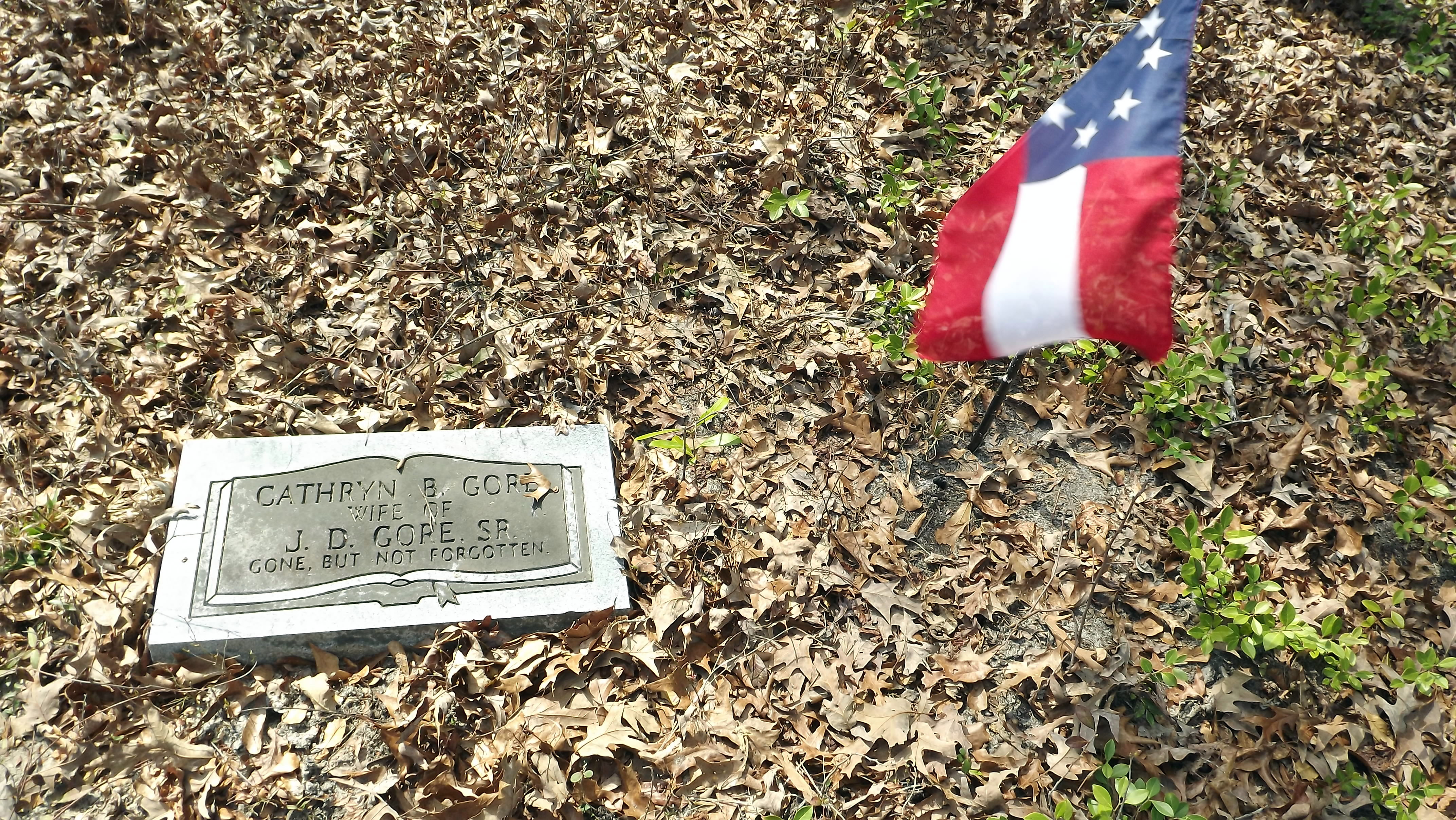In 1862, Jesse D. Gore, Sr enlisted as a Confederate Soldier in Capt. Mayham Ward's Company South Carolina Lt. Art'y. (Waccamaw Lt. Art'y.), in Horry County, South Carolina.
Capt. Mayham Ward's Co. Artillery (Waccamaw Light Artillery) was engaged in the following major battles along with other skirmishes:
Black River (13 AUG 1862)
Charleston Harbor (AUG - SEP 1863)
In April 1864, Jesse transferred into the 36th Regiment (2nd Artillery), Company K, North Carolina State Troops.
The 36th Regiment Volunteers-2nd Artillery [also called Cape Fear Regiment] completed its organization at Forst Caswell, North Carolina, in May, 1862. Its companies were from the counties of Sampson, Cumberland, New Hanover, Columbus, Halifax, Brunswick, and Bladen.
The unit was attached to the Department of North Carolina and Southern Virginia and was active at different posts defending Cape Fear. Later eight companies were engaged at Fort Fisher, one at Fort Campbell, and one at Wilmington. In December, 1864, a detachment was involved in the defense of Savannah.
Jesse fought at both Battles of Fort Fisher, defending the Fort against both Union attacks, in December 1864 and again in January 1865.
The first Union attack started on December 24, 1864 with a naval bombardment. The firepower of Fort Fisher was temporarily silenced because some of its gun positions exploded. This allowed the Navy to land Union infantry. The landing force was intercepted by the arrival of Hoke's troops. The Union attack was effectively thwarted, and on December 27 Benjamin Butler ordered the withdrawal of his 1,000 soldiers who were still on the beach. This was in disobeyance of Grant's orders, which were to besiege the fort if the assault failed. Because Butler disobeyed his orders, he was relieved of command by Grant.
After Butler's removal, he was replaced by Major General Alfred Terry, and the operation was dubbed "Terry's expedition." Admiral Porter was again in charge of the naval attack. They waited until January 12, 1865, for the second attempt which lasted three days.
They started with a strong bombardment from 56 ships for two and a half days. This targeted both of Fort Fisher's fronts. On January 15 at 3 p.m., 8,000 Union soldiers ( who landed on January 12) attacked at the Land Face. At the same time 2,000 Navy Sailors armed with small arms attached the fort's Northeast Bastion (the point where the Land Face met the Sea Face). As the bombardment continued, the Naval attack was repulsed while the Union infantry entered the fortification through Shepherd Battery. Thus, the Confederate soldiers found themselves battling behind their walls, and were forced to retreat.
Altogether, the land battle lasted six hours. At nighttime, General William Whiting, who had been wounded during the battle, surrendered as Commander of the District of Cape Fear. He was then imprisoned, where he died March 10, 1865. The Confederates who had been captured and were not wounded were taken to the Federal Prison located at Elmira, New York and assigned to Company E, 3rd Division of Prisoners.
Wounded Confederates were admitted to Hammond General Hospital and upon recovery were discharged and transferred to the main prison complex. Hammond General Hospital was outside the Prison Compound at Point Lookout, Maryland. Many of the guards in the Prison at Point Lookout were former slaves that had joined the Union ranks.
After the capture of Fort Fisher, Jesse D. Gore was captured by Union Soldiers and taken prisoner to the Union Prison Camp at Point Lookout, Maryland, where he was released in April 1865 after signing the Oath of Allegiance.
Jesse returned home to his family in southeastern North Carolina and picked up the pieces of his life and moved forward. He died at home in 1907, and is buried with his wife and family in Chadwick Cemetery in Leland, North Carolina.
Bio provided by Dewayne Gore
In 1862, Jesse D. Gore, Sr enlisted as a Confederate Soldier in Capt. Mayham Ward's Company South Carolina Lt. Art'y. (Waccamaw Lt. Art'y.), in Horry County, South Carolina.
Capt. Mayham Ward's Co. Artillery (Waccamaw Light Artillery) was engaged in the following major battles along with other skirmishes:
Black River (13 AUG 1862)
Charleston Harbor (AUG - SEP 1863)
In April 1864, Jesse transferred into the 36th Regiment (2nd Artillery), Company K, North Carolina State Troops.
The 36th Regiment Volunteers-2nd Artillery [also called Cape Fear Regiment] completed its organization at Forst Caswell, North Carolina, in May, 1862. Its companies were from the counties of Sampson, Cumberland, New Hanover, Columbus, Halifax, Brunswick, and Bladen.
The unit was attached to the Department of North Carolina and Southern Virginia and was active at different posts defending Cape Fear. Later eight companies were engaged at Fort Fisher, one at Fort Campbell, and one at Wilmington. In December, 1864, a detachment was involved in the defense of Savannah.
Jesse fought at both Battles of Fort Fisher, defending the Fort against both Union attacks, in December 1864 and again in January 1865.
The first Union attack started on December 24, 1864 with a naval bombardment. The firepower of Fort Fisher was temporarily silenced because some of its gun positions exploded. This allowed the Navy to land Union infantry. The landing force was intercepted by the arrival of Hoke's troops. The Union attack was effectively thwarted, and on December 27 Benjamin Butler ordered the withdrawal of his 1,000 soldiers who were still on the beach. This was in disobeyance of Grant's orders, which were to besiege the fort if the assault failed. Because Butler disobeyed his orders, he was relieved of command by Grant.
After Butler's removal, he was replaced by Major General Alfred Terry, and the operation was dubbed "Terry's expedition." Admiral Porter was again in charge of the naval attack. They waited until January 12, 1865, for the second attempt which lasted three days.
They started with a strong bombardment from 56 ships for two and a half days. This targeted both of Fort Fisher's fronts. On January 15 at 3 p.m., 8,000 Union soldiers ( who landed on January 12) attacked at the Land Face. At the same time 2,000 Navy Sailors armed with small arms attached the fort's Northeast Bastion (the point where the Land Face met the Sea Face). As the bombardment continued, the Naval attack was repulsed while the Union infantry entered the fortification through Shepherd Battery. Thus, the Confederate soldiers found themselves battling behind their walls, and were forced to retreat.
Altogether, the land battle lasted six hours. At nighttime, General William Whiting, who had been wounded during the battle, surrendered as Commander of the District of Cape Fear. He was then imprisoned, where he died March 10, 1865. The Confederates who had been captured and were not wounded were taken to the Federal Prison located at Elmira, New York and assigned to Company E, 3rd Division of Prisoners.
Wounded Confederates were admitted to Hammond General Hospital and upon recovery were discharged and transferred to the main prison complex. Hammond General Hospital was outside the Prison Compound at Point Lookout, Maryland. Many of the guards in the Prison at Point Lookout were former slaves that had joined the Union ranks.
After the capture of Fort Fisher, Jesse D. Gore was captured by Union Soldiers and taken prisoner to the Union Prison Camp at Point Lookout, Maryland, where he was released in April 1865 after signing the Oath of Allegiance.
Jesse returned home to his family in southeastern North Carolina and picked up the pieces of his life and moved forward. He died at home in 1907, and is buried with his wife and family in Chadwick Cemetery in Leland, North Carolina.
Bio provided by Dewayne Gore
Family Members
Sponsored by Ancestry
Advertisement
Records on Ancestry
Advertisement















